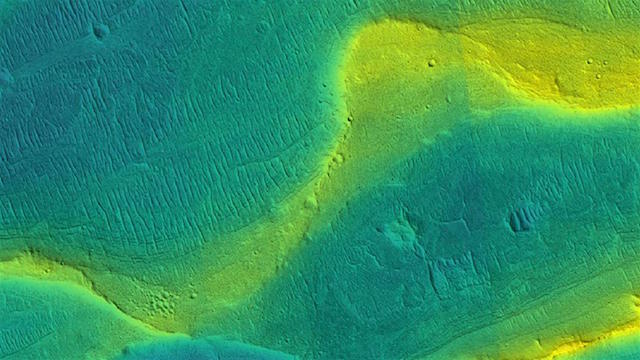 Long ago on Mars, water carved deep riverbeds into the planet’s surface — but we still don’t know what kind of weather fed them. Scientists aren’t sure, because their understanding of the Martian climate billions of years ago remains incomplete.
Long ago on Mars, water carved deep riverbeds into the planet’s surface — but we still don’t know what kind of weather fed them. Scientists aren’t sure, because their understanding of the Martian climate billions of years ago remains incomplete.
A new study by University of Chicago scientists catalogued these rivers to conclude that significant river runoff persisted on Mars later into its history than previously thought. According to the study, published March 27 in Science Advances, the runoff was intense — rivers on Mars were wider than those on Earth today—and occurred at hundreds of locations on the red planet.
This complicates the picture for scientists trying to model the ancient Martian climate, said lead study author Edwin Kite, assistant professor of geophysical sciences and an expert in both the history of Mars and climates of other worlds. “It’s already hard to explain rivers or lakes based on the information we have,” he said. “This makes a difficult problem even more difficult.”
But, he said, the constraints could be useful in winnowing the many theories researchers have proposed to explain the climate.
Mars is crisscrossed with the distinctive tracks of long-dead rivers. NASA’s spacecraft have taken photos of hundreds of these rivers from orbit, and when the Mars rover Curiosity landed in 2012, it sent back images of pebbles that were rounded—tumbled for a long time in the bottom of a river.
But it’s a puzzle why ancient Mars had liquid water. Mars has an extremely thin atmosphere today, and early in the planet’s history, it was also only receiving a third of the sunlight of present-day Earth, which shouldn’t be enough heat to maintain liquid water. “Indeed, even on ancient Mars, when it was wet enough for rivers some of the time, the rest of the data looks like Mars was extremely cold and dry most of the time,” Kite said. [More at links]








